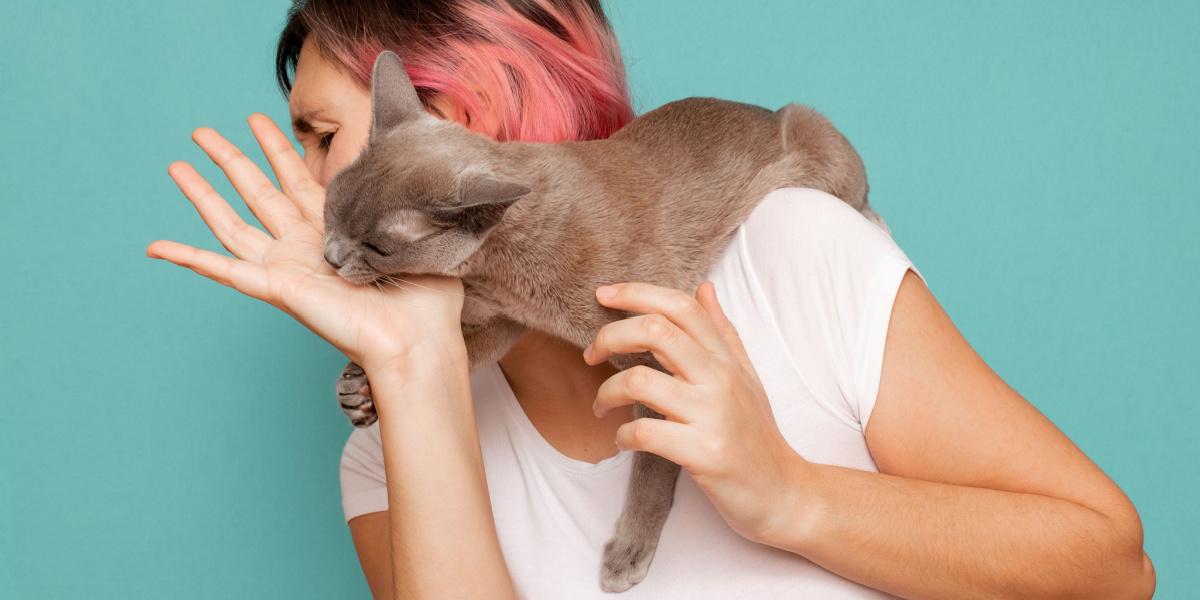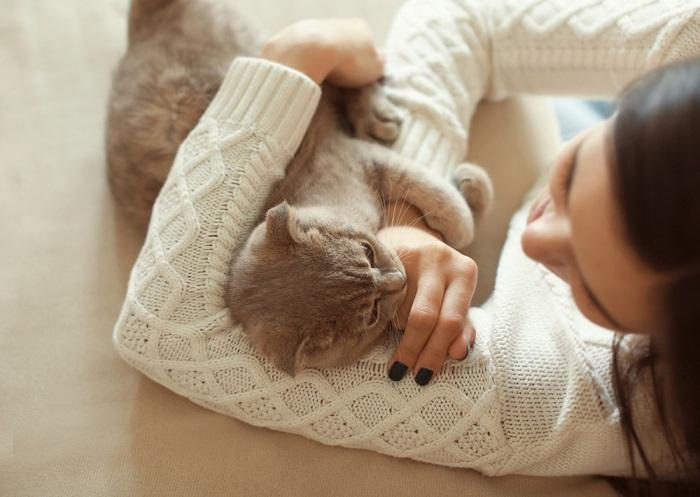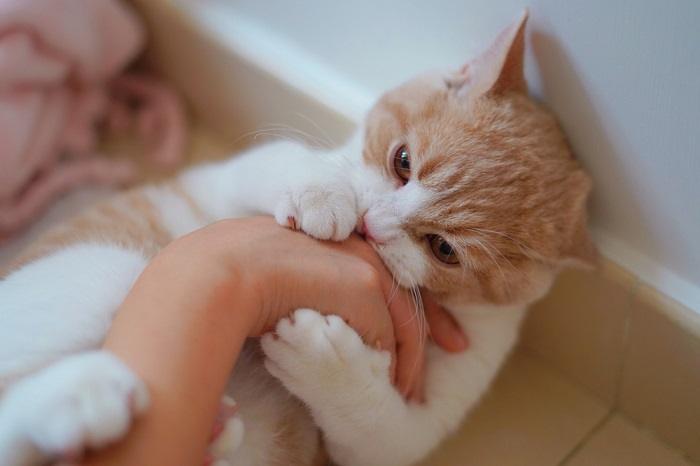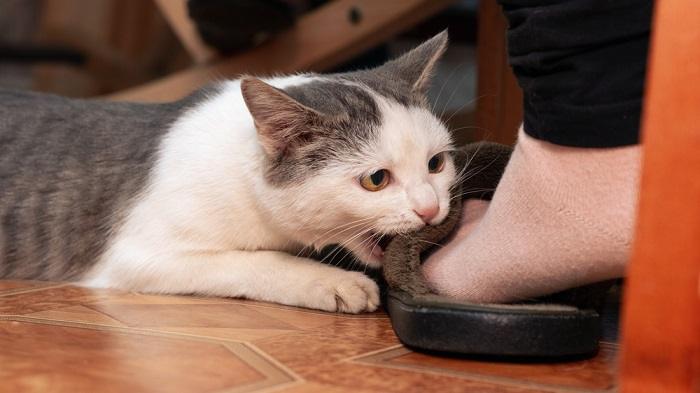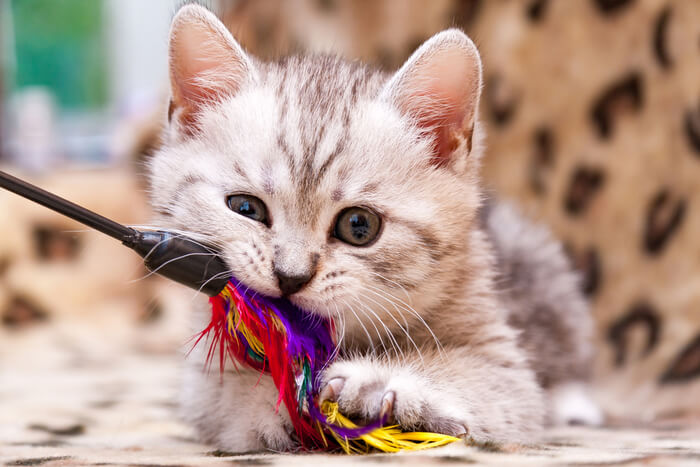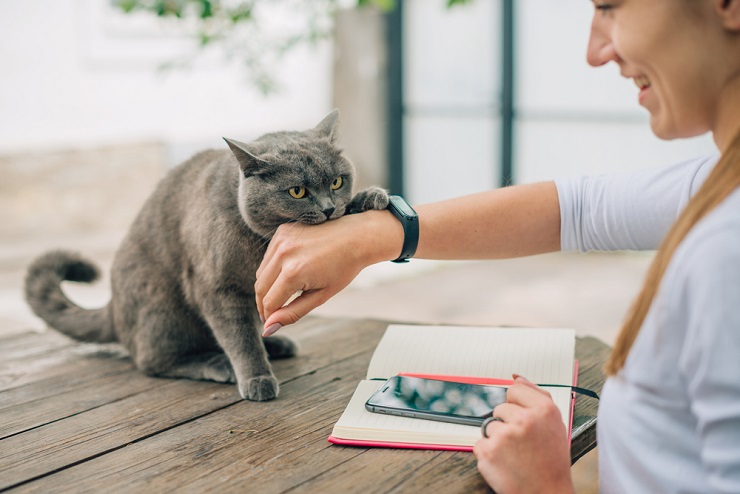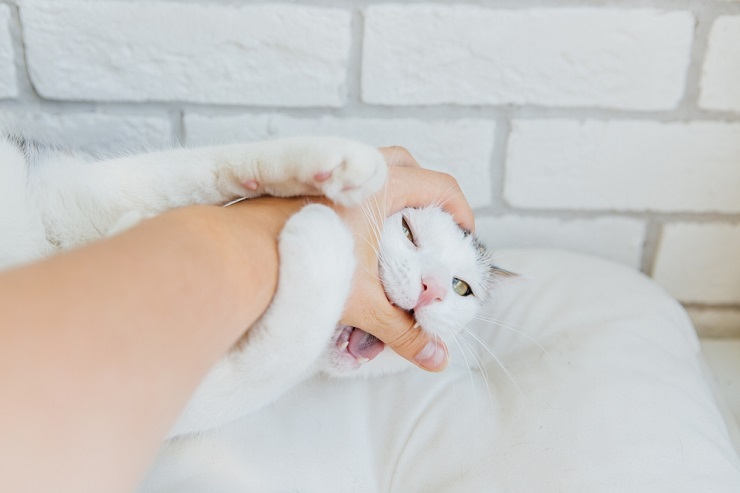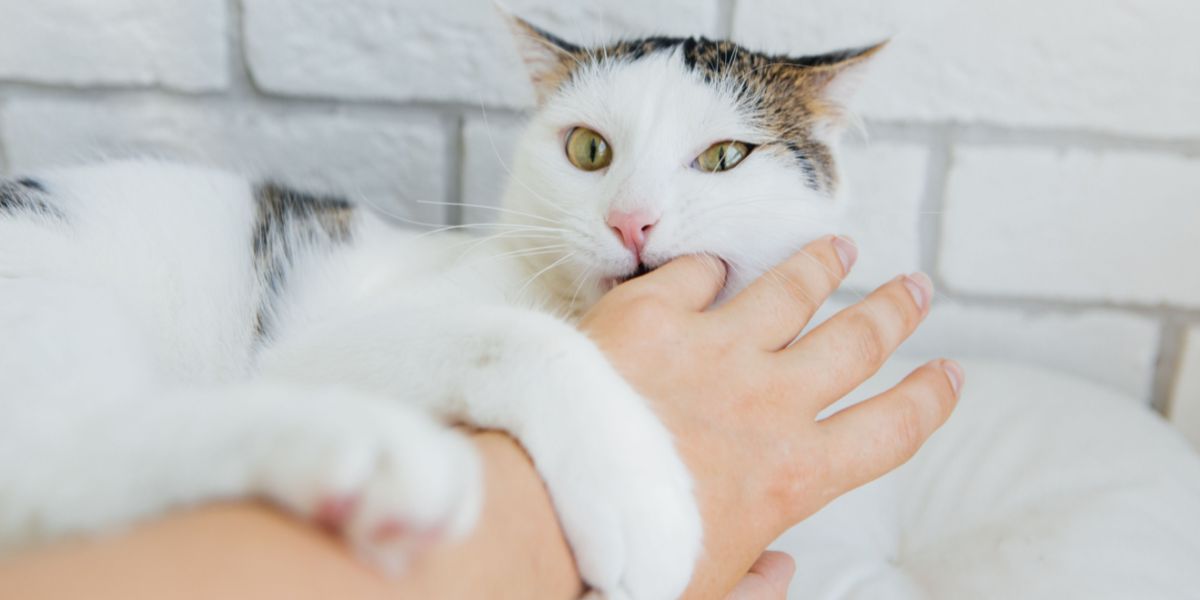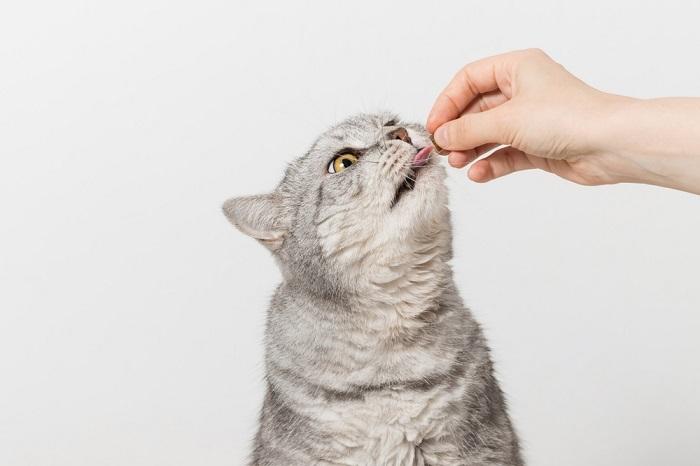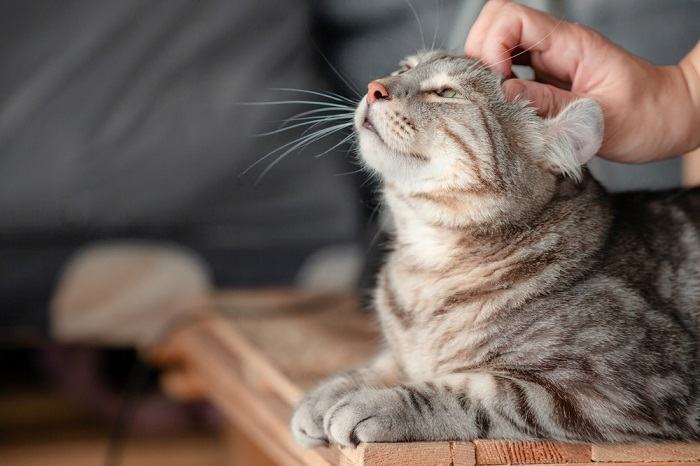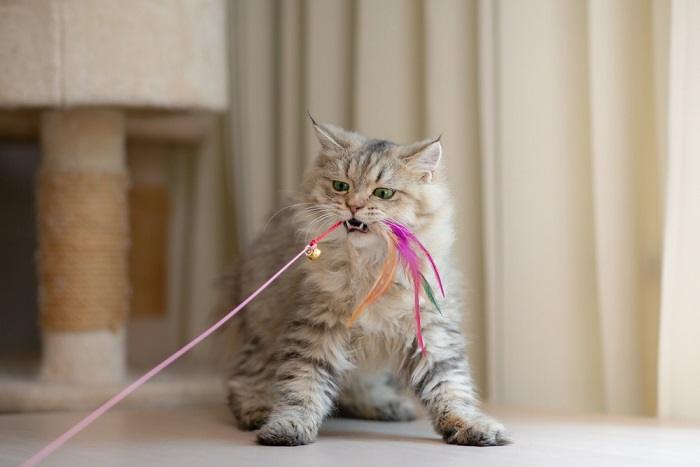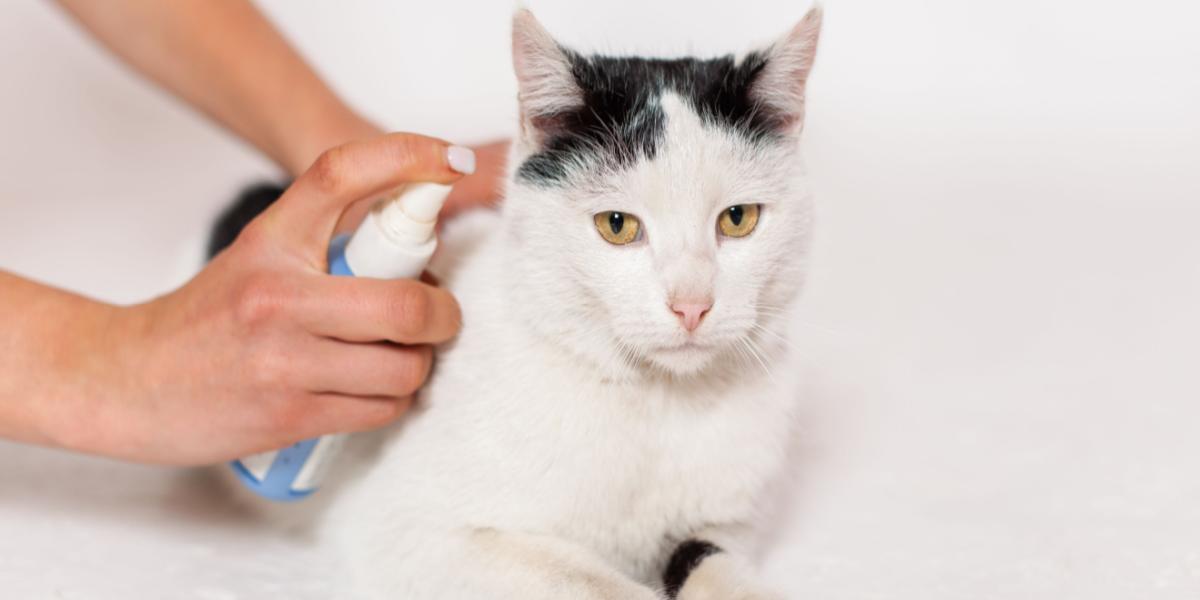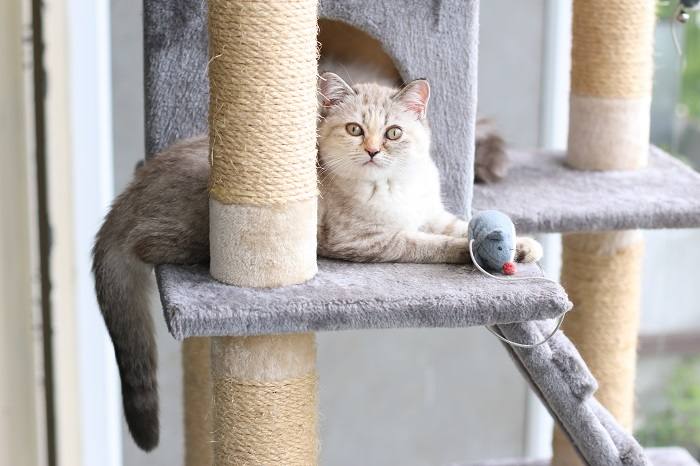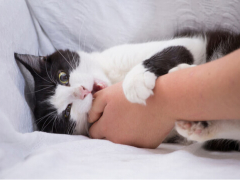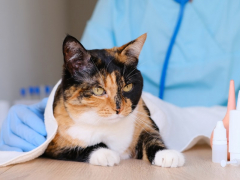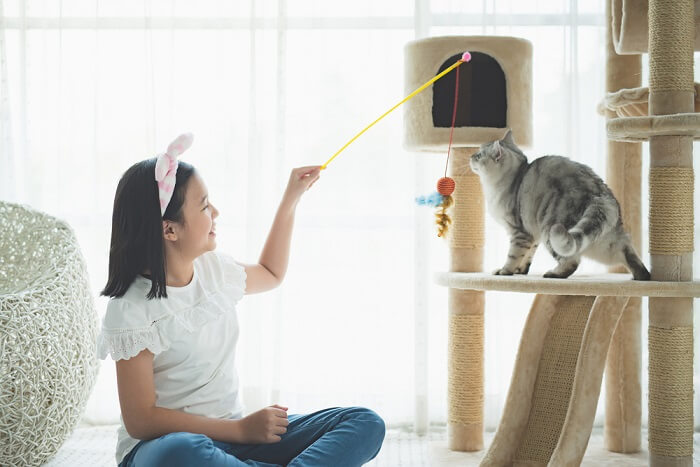It’s pretty upsetting when a feline family member seems to show more affection for your other half than you. Sometimes, though, rather than just ignoring you, cats can go a step further and lash out with seemingly aggressive behavior.
Aggressive behavior is often caused by a miscommunication between you and your cat. Cats might lash out due to overexcitement, boredom, fear, or jealousy. Once you identify what's causing your cat’s outbursts, you can start to repair your relationship using positive reinforcement, play, and pheromones, while also respecting when they want their space. Key Takeaways
If your cat has decided they love your husband, wife, or partner more than you, it’s hard not to take it personally, especially if you’re a cat lover. Try not to let it affect you though because there’s plenty you can do, as a cat owner, to understand their behavior and improve your bond.
Do Cats Have Favorite People?
Cats do sometimes choose their favorite person and give them a lot of affectionate cuddles.
Cats do sometimes choose their favorite person. This is usually a member of the family, and it’s, often but not always, the person who feeds them or spends the most time with them. If you’re your cat’s favorite, they might let you know by following you around the house just to be near you.
If they’re vocal, they might meow and spend a lot of time chatting to you, and the moment you sit down they’ll hop up next to you for you to pet them. The favorite person might be on the receiving end of lots of affectionate headbutts and love bites, and they’re sure to hear a lot of purring.
You might assume that the cat’s favorite family member will be the one who needs them the most or the one who enjoys their company the most. However, this isn’t always the case. Cats often seek out people who are less interested in them, and less clingy. Sometimes, they even end up bonding with the person who said they didn’t want a cat in the first place.
Also Read: 10 Signs You Might Have A Clingy Cat
Why Might Your Cat Attack You?
It’s hurtful to think that your cat loves someone else more than you, especially if you’re a cat person and they’re not. It’s important to remember that it’s probably not anything you’ve done wrong, just a bit of a miscommunication between you and your cat. Here are some of the possible reasons why your cat might attack you:
1. They’re Playing
There can sometimes be a fine line between rough play and aggressive behavior in cats.
If you’re not looking closely, it’s tricky to distinguish between play aggression or rough play and aggressive behavior in cats. In both cases, your cat might have dilated pupils and their tail could be swishing frantically.
If you’ve not heard any hissing or growling, and your cat is nibbling rather than biting or scratching with any intent, they might just be playing. This is a common reason for cat aggression. Try to use up their energy with some activity toys, puzzle feeders, or cat trees and redirect them to these when they start to get feisty.
Also Read: How To Safely Play With A Cat, According To A Cat Behaviorist
2. They’re Bored
Cats that are under-stimulated can sometimes lash out with aggression or rough behavior.
By a similar token, boredom can lead to outbursts of cat aggression or rough behavior. This is often fueled by frustration and is especially common in indoor cats who are left alone for long periods.
You might find it happens less if you have an outdoor cat, but it’s important to think about the safety risks of allowing your cat outdoors. Plenty of toys, play sessions, and other interactions with you when you’re home should help to stem the boredom and keep the cat bites, lunges, and scratches to a minimum.
Also Read: Why Do Cats Bite Each Other’s Necks?
3. It’s Time For Zoomies
Cats sometimes express aggressive behavior when they get overexcited during a case of the zoomies.
Zoomies is often used to describe a funny five minutes in dogs, where they suddenly zoom around using lots of energy for no apparent reason. Cats can display this behavior too—often at 3am when we’re trying to sleep!
If you happen to be around when it’s time for zoomies, you might get caught in the crossfire. Providing plenty of mental stimulation and physical activities should help your cat to burn off their energy throughout the day and avoid overstimulation when you’re around.
Also Read: Why Do Cats Crab Walk: Here’s What It Means
4. They Feel Threatened
Cats might respond aggressively if they’re feeling threatened, even if you don’t know the reason why.
Your cat could be lashing out because they’re feeling threatened or protective. It could be that you have stood in between them and their favorite person, or that you’ve placed yourself between them and the door.
Maybe you’re being particularly loud or animated and your laughter or shouting is scary, or perhaps you’re rushing around making lots of noise. Looking at the situation where your cat tends to act aggressively might give you some clues as to what’s bothering them.
Also Read: 6 Reasons Your Cat Makes Weird Noises At Night
5. They’re Jealous
If your cat bites or attacks you when you are near your partner, it could be due to jealousy.
Jealousy isn’t just a human emotion. If they’re particularly attached to your partner, your cat might feel jealous of you when you’re around and getting the attention. If your cat bites or attacks you when you are near your partner, this could be the problem. Try to make sure that you allow your partner uninterrupted quality time with the cat every day so that they don’t see you as a threat to their bond.
Also Read: Do Cats Get Jealous Of Other Cats?
6. They Don’t Like Your Smell
Cats are very sensitive to scents—if you smell different, they might become upset.
Your cat might be offended if you smell like other cats or predators. If you regularly visit a friend with a male cat and enjoy a cuddle, your female cat might not be too pleased. Or if you accompany your sister when she walks the dog, your cat might pick up on the scent.
This could also be the case if you get a new cat, or have a job where you work closely with animals, like a veterinarian, vet tech, groomer, or pet sitter. Changing your clothes and washing your hands when you arrive home should help to remove some of the stenches but avoid strong-smelling chemicals that your cat will also avoid.
Also Read: Do Cats Have A Good Sense Of Smell?
7. You’ve Missed Their Signals
Cats usually give clear signs when they want some space, but humans often miss them.
If you’ve come in from a long day at work, you might be keen for a cuddle with your cat. However, before you swoop in and grab them, it’s worth acknowledging their body language. It’s lovely that you want some quality time with your furry family member, but if their ears are back, and their body is hunched, or if they don’t engage with you when you gently fuss them, they’re probably not in the mood.
If you ignore the signals from your cat’s behavior that they want to be left alone, even if it’s well-meaning, you could be damaging your bond.
How Can You Bond With Your Cat?
Now that you have some ideas as to what might be causing your cat’s outbursts, there are steps you can take to your relationship. Read on for expert advice on repairing your bond with your cat.
1. Positive Reinforcement
Offer treats and soft praise when your cat is behaving nicely so your cat forms positives associations with you.
When you share a sweet moment with your cat, or when they approach you curiously, reward them with a treat, or some praise in a calm, soft voice. They’ll start to associate you with good feelings, and your bond will strengthen.
Also Read: Can You Discipline A Cat?
2. Playtime
Playtime is an excellent activity for bonding and to help your cat release pent-up energy.
If your cat is the type that has lots of energy, why not spend some time playing with them every day? This won’t just create a better bond between you both, it’ll also use up some of their energy and stop them from becoming bored.
Also Read: The 12 Best Cat Toys: Keep Your Cat Fit And Happy With These Irresistible Toys
3. Check Their Body Language
Take a close look at your cat’s body language to make sure they seem receptive to physical touch and cuddles.
Before you go to pet your cat, check their body language. A happy cat that’s feeling sociable will have their ears slightly forward or upward. They’ll be rubbing against things or reaching out to you with their nose or paws.
If you gently stroke behind their ears or under their chin, they might start to purr or move their head to help you find the right spot.
Also Read: How To Tell If A Cat Is Angry
4. Use Pheromones
Pheromones work to reduce stress, which can help your cat calm down.
If your cat seems stressed or unwell, you should speak to your veterinarian. However, some cat pheromone sprays and diffusers can help to improve the bond between cats and their owners. It’s not an instant fix, but it should help.
5. Give Them Space
If you respect your cat’s need for space, it will help them to feel more comfortable around you.
If your cat doesn’t seem to want your attention, it’s best not to push the idea. Leave them alone and let them have their own space. If you follow them or make repeated attempts to touch them or pick them up, you’ll only make them feel more anxious around you. By acknowledging when they want to be alone and respecting that, you’ll be showing them that they can trust you.
Final Thoughts
When cats attack just one person in the household, it’s usually a behavioral issue rather than a health problem.
Cats can attack for lots of reasons, including pain and feeling unwell. However, if your cat is only attacking one person, and seems fine with everyone else, it’s less likely to be a health issue. The tips above should help you find the cause of the problem and take steps toward a better bond with your favorite feline. If things aren’t improving, speak to your veterinarian or book a consultation with a qualified veterinary behaviorist.
Also Read: 5 Ways To Build A Stronger Bond With Your Cat
Frequently Asked Questions
What does it mean when a cat only attacks one person?
If a cat only attacks one person it’s less likely that there’s a medical issue. It’s more likely that your cat is feeling playful, threatened, bored, or jealous. By finding out the reason, you should be able to improve the situation.
Why does my cat attack me but no one else?
It could be that your cat sees you as a play buddy, which is kind of a compliment! However, it could also mean that they find something about you threatening, so check the list above to see if something sounds familiar.
Why does my cat like me but not my husband?
Cats often choose their favorite people, and if you're not the favorite, you probably can't change their mind. If your husband wants to improve his bond with the cat, he could try interacting with them more (on their terms), engaging in playtime, or rewarding them when they approach him.
Why does my cat bite me?
There are lots of reasons why your cat could be biting you. If it’s out of character, you should speak to a veterinarian in case they are in pain or feeling unwell. Secondly, check for any changes in their environment that could be making them feel stressed or anxious. If they are fine with everyone else, check the list above to see if you can determine the reason for their outbursts.
